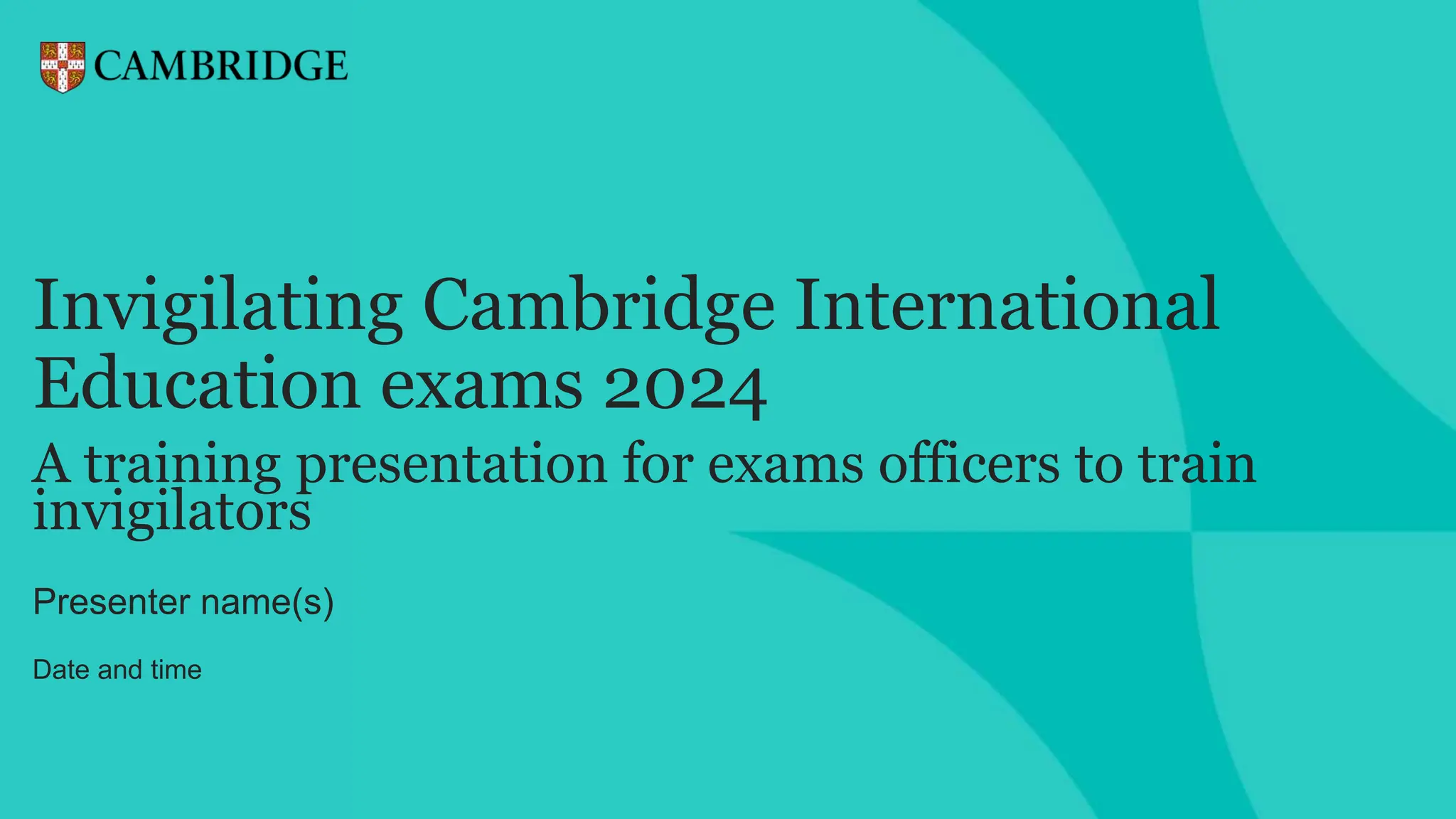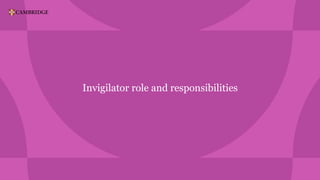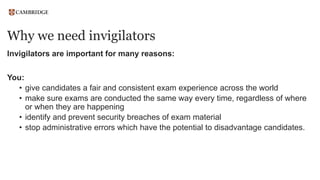This document provides guidance for invigilators on their role and responsibilities in administering Cambridge International exams. It outlines key concepts like invigilator duties, access arrangements, key times, and full center supervision. It also gives guidance on dealing with unexpected situations during exams, as well as procedures for before, during, and after exams.













































